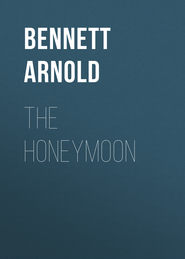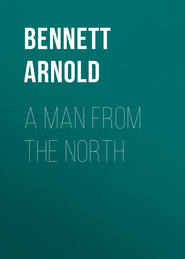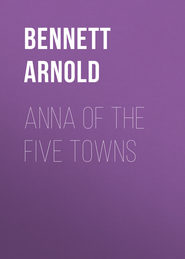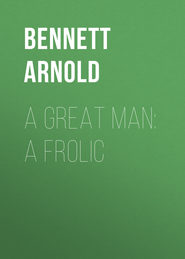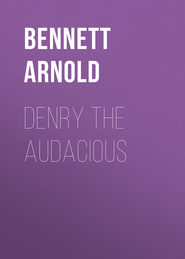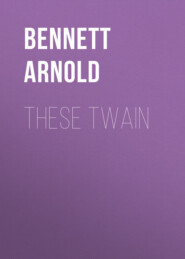По всем вопросам обращайтесь на: info@litportal.ru
(©) 2003-2024.
✖
The Old Adam: A Story of Adventure
Настройки чтения
Размер шрифта
Высота строк
Поля
"How, you don't know? You must know whether you were teasing the dog or not!" Edward Henry was nettled.
The renewed spectacle of his own wound had predisposed Robert to feel a great and tearful sympathy for himself. His mouth now began to take strange shapes and to increase magically in area, and beads appeared in the corners of his large eyes.
"I-I was only measuring his tail by his hind leg," he blubbered, and then sobbed.
Edward Henry did his best to save his dignity.
"Come, come!" he reasoned, less menacingly. "Boys who can read enyclopedias mustn't be cry-babies. You'd no business measuring Carlo's tail by his hind leg. You ought to remember that that dog's older than you." And this remark, too, he thought rather funny, but apparently he was alone in his opinion.
Then he felt something against his calf. And it was Carlo's nose. Carlo was a large, very shaggy and unkempt Northern terrier, but owing to vagueness of his principal points, due doubtless to a vagueness in his immediate ancestry, it was impossible to decide whether he had come from the north or the south side of the Tweed. This aging friend of Edward Henry's, surmising that something unusual was afoot in his house, and having entirely forgotten the trifling episode of the bite, had unobtrusively come to make enquiries.
"Poor old boy!" said Edward Henry, stooping to pat the dog. "Did they try to measure his tail with his hind leg?"
The gesture was partly instinctive, for he loved Carlo; but it also had its origin in sheer nervousness, in sheer ignorance of what was the best thing to do. However, he was at once aware that he had done the worst thing. Had not Nellie announced that the dog must be got rid of? And here he was fondly caressing the bloodthirsty dog! With a hysterical movement of the lower part of her leg, Nellie pushed violently against the dog, – she did not kick, but she nearly kicked, – and Carlo, faintly howling a protest, fled.
Edward Henry was hurt. He escaped from between the beds, and from that close, enervating domestic atmosphere where he was misunderstood by women and disdained by infants. He wanted fresh air; he wanted bars, whiskies, billiard-rooms, and the society of masculine men about town. The whole of his own world was against him.
As he passed by his knitting mother, she ignored him and moved not. She had a great gift of holding aloof from conjugal complications.
On the landing he decided that he would go out at once into the major world. Half-way down the stairs he saw his overcoat on the hall-stand, beckoning to him and offering release.
Then he heard the bedroom door and his wife's footsteps.
"Edward Henry!"
"Well?"
He stopped and looked up inimically at her face, which overhung the banisters. It was the face of a woman outraged in her most profound feelings, but amazingly determined to be sweet.
"What do you think of it?"
"What do I think of what? The wound?"
"Yes."
"Why, it's simply nothing. Nothing at all. You know how that kid always heals up quickly. You won't be able to find the wound in a day or two."
"Don't you think it ought to be cauterised at once?"
He moved downwards.
"No, I don't. I've been bitten three times in my life by dogs, and I was never cauterised."
"Well, I do think it ought to be cauterised." She raised her voice slightly as he retreated from her. "And I shall be glad if you'll call in at Dr. Stirling's and ask him to come round."
He made no reply, but put on his overcoat and his hat, and took his stick. Glancing up the stairs, he saw Nellie was now standing at the head of them, under the electric light there, and watching him. He knew that she thought he was cravenly obeying her command. She could have no idea that before she spoke to him he had already decided to put on his overcoat and hat and take his stick and go forth into the major world. However, that was no affair of his.
He hesitated a second. Then the nurse appeared out of the kitchen with a squalling Maisie in her arms, and ran up-stairs. Why Maisie was squalling, and why she should have been in the kitchen at such an hour instead of in bed, he could not guess; but he could guess that if he remained one second longer in that exasperating minor world he would begin to smash furniture, and so he quitted it.
V
It was raining slightly, but he dared not return to the house for his umbrella. In the haze and wet of the shivering October night, the clock of Bleakridge Church glowed like a fiery disk suspended in the sky; and, mysteriously hanging there, without visible means of support, it seemed to him somehow to symbolise the enigma of the universe and intensify his inward gloom. Never before had he had such feelings to such a degree. It is scarcely an exaggeration to say that never before had the enigma of the universe occurred to him. The side gates clicked as he stood hesitant under the shelter of the wall, and a figure emerged from his domain. It was Bellfield, the new chauffeur, going across to his home in the little square in front of the church. Bellfield touched his cap with an eager and willing hand, as new chauffeurs will.
"Want the car, sir? Setting in for a wet night!"
"No, thanks."
It was a lie. He did want the car. He wanted the car so that he might ride right away into a new and more interesting world, or at any rate into Hanbridge, centre of the pleasures, the wickedness, and the commerce of the Five Towns. But he dared not have the car. He dared not have his own car. He must slip off, noiseless and unassuming. Even to go to Dr. Stirling's he dared not have the car. Besides, he could have walked down the hill to Dr. Stirling's in three minutes. Not that he had the least intention of going to Dr. Stirling's. No! His wife imagined that he was going; but she was mistaken. Within an hour, when Dr. Stirling had failed to arrive, she would doubtless telephone, and get her Dr. Stirling. Not, however, with Edward Henry's assistance!
He reviewed his conduct throughout the evening. In what particular had it been sinful? In no particular. True, the accident to the boy was a misfortune, but had he not borne that misfortune lightly, minimised it, and endeavoured to teach others to bear it lightly? His blithe humour ought surely to have been an example to Nellie! And as for the episode of the funeral march on the "Pianisto," really, really, the tiresome little thing ought to have better appreciated his whimsical drollery!
But Nellie was altered; he was altered; everything was altered. He remembered the ecstasy of their excursion to Switzerland. He remembered the rapture with which, on their honeymoon, he had clasped a new opal bracelet on her exciting arm. He could not possibly have such sensations now. What was the meaning of life? Was life worth living? The fact was, he was growing old. Useless to pretend to himself that it was not so. Both he and she were growing old. Only, she seemed to be placidly content, and he was not content. And more and more the domestic atmosphere and the atmosphere of the district fretted and even annoyed him. To-night's affair was not unique, but it was a culmination. He gazed pessimistically north and south along the slimy expanse of Trafalgar Road, which sank northwards in the direction of Dr. Stirling's, and southwards in the direction of joyous Hanbridge. He loathed and despised Trafalgar Road. What was the use of making three hundred and forty-one pounds by a shrewd speculation? None. He could not employ three hundred and forty-one pounds to increase his happiness. Money had become futile for him. Astounding thought! He desired no more of it. He had a considerable income from investments, and also at least four thousand a year from the Five Towns Universal Thrift Club, that wonderful but unpretentious organisation which now embraced every corner of the Five Towns; that gorgeous invention for profitably taking care of the pennies of the working classes; that excellent device, his own, for selling the working classes every kind of goods at credit prices after having received part of the money in advance!
"I want a change!" he said to himself, and threw away his cigar.
After all, the bitterest thought in his heart was perhaps that on that evening he had tried to be a "card," and, for the first time in his brilliant career as a "card," had failed. He, Henry Machin, who had been the youngest mayor of Bursley years and years ago; he, the recognised amuser of the Five Towns; he, one of the greatest "characters" that the Five Towns had ever produced-he had failed of an effect!
He slipped out on to the pavement, and saw, under the gas-lamp, on the new hoarding of the football-ground, a poster intimating that during that particular week there was a gigantic attraction at the Empire Music Hall at Hanbridge. According to the posters, there was a gigantic attraction every week at the Empire, but Edward Henry happened to know that this week the attraction was indeed somewhat out of the common. And to-night was Friday, the fashionable night for the bloods and the modishness of the Five Towns. He looked at the church clock, and then at his watch. He would be in time for the "second house," which started at nine o'clock. At the same moment an electric tram-car came thundering up out of Bursley. He boarded it, and was saluted by the conductor. Remaining on the platform, he lit a cigarette, and tried to feel cheerful; but he could not conquer his depression.
"Yes," he thought, "what I want is change-and a lot of it too!"
CHAPTER II
THE BANK-NOTE
I
Alderman Machin had to stand at the back, and somewhat towards the side, of that part of the auditorium known as the Grand Circle at the Empire Music Hall, Hanbridge. The attendants at the entrance and in the lounge, where the salutation "Welcome" shone in electricity over a large Cupid-surrounded mirror, had compassionately and yet exultingly told him that there was not a seat left in the house. He had shared their exultation. He had said to himself, full of honest pride in the Five Towns: "This music-hall, admitted by the press to be one of the finest in the provinces, holds over two thousand five hundred people. And yet we can fill it to overflowing twice every night! And only a few years ago there wasn't a decent music-hall in the entire district!"
The word "progress" flitted through his head.
It was not strictly true that the Empire was or could be filled to overflowing twice every night, but it was true that at that particular moment not a seat was unsold; and the aspect of a crowded auditorium is apt to give an optimistic quality to broad generalisations. Alderman Machin began instinctively to calculate the amount of money in the house, and to wonder whether there would be a chance for a second music-hall in the dissipated town of Hanbridge. He also wondered why the idea of a second music-hall in Hanbridge had never occurred to him before.
The Grand Circle was so-called because it was grand. Its plush fauteuils cost a shilling, no mean price for a community where seven pounds of potatoes can be bought for sixpence, and the view of the stage therefrom was perfect. But the alderman's view was far from perfect, since he had to peer as best he could between and above the shoulders of several men, each apparently, but not really, taller than himself. By constant slight movements to comply with the movements of the rampart of shoulders, he could discern fragments of various advertisements of soap, motor-cars, whisky, shirts, perfume, pills, bricks, and tea, for the drop-curtain was down. And, curiously, he felt obliged to keep his eyes on the drop-curtain, and across the long intervening vista of hats and heads and smoke, to explore its most difficult corners again and again, lest, when it went up, he might not be in proper practice for seeing what was behind it.
Nevertheless, despite the marked inconveniences of his situation, he felt brighter, he felt almost happy in this dense atmosphere of success. He even found a certain peculiar and perverse satisfaction in the fact that he had as yet been recognised by nobody. Once or twice the owners of shoulders had turned and deliberately glared at the worrying fellow who had the impudence to be all the time peeping over them and between them; they had not distinguished the fellow from any ordinary fellow. Could they have known that he was the famous Alderman Edward Henry Machin, founder and sole proprietor of the Thrift Club, into which their wives were probably paying so much a week, they would most assuredly have glared to another tune, and they would have said with pride afterwards, "That chap Machin o' Bursley was standing behind me at the Empire to-night." And though Machin is amongst the commonest names in the Five Towns, all would have known that the great and admired Denry was meant. It was astonishing that a personage so notorious should not have been instantly "spotted" in such a resort as the Empire. More proof that the Five Towns was a vast and seething concentration of cities, and no longer a mere district where everybody knew everybody.
The curtain rose, and, as it did so, a thunderous, crashing applause of greeting broke forth-applause that thrilled and impressed and inspired; applause that made every individual in the place feel right glad that he was there. For the curtain had risen on the gigantic attraction which many members of the audience were about to see for the fifth time that week; in fact, it was rumoured that certain men of fashion, whose habit was to refuse themselves nothing, had attended every performance of the gigantic attraction since the second house on Monday.
The scene represented a restaurant of quiet aspect, into which entered a waiter bearing a pile of plates some two feet high. The waiter being intoxicated, the tower of plates leaned this way and that as he staggered about, and the whole house really did hold its breath in the simultaneous hope and fear of an enormous and resounding smash. Then entered a second intoxicated waiter, also bearing a pile of plates some two feet high; and the risk of destruction was thus more than doubled-it was quadrupled, for each waiter, in addition to the risks of his own inebriety, was now subject to the dreadful peril of colliding with the other. However, there was no catastrophe.
Then arrived two customers, one in a dress suit and an eye-glass, and the other in a large violet hat, a diamond necklace, and a yellow satin skirt. The which customers, seemingly well used to the sight of drunken waiters tottering to and fro with towers of plates, sat down at a table and waited calmly for attention. The popular audience, with that quick mental grasp for which popular audiences are so renowned, soon perceived that the table was in close proximity to a lofty sideboard, and that on either hand of the sideboard were two chairs, upon which the two waiters were trying to climb in order to deposit their plates on the top-most shelf of the sideboard. The waiters successfully mounted the chairs, and successfully lifted their towers of plates to within half an inch of the desired shelf, and then the chairs began to show signs of insecurity. By this time the audience was stimulated to an ecstasy of expectation, whose painfulness was only equalled by its extreme delectability. The sole unmoved persons in the building were the customers awaiting attention at the restaurant table.
One tower was safely lodged on the shelf. But was it? It was not! Yes? No! It curved; it straightened; it curved again. The excitement was as keen as that of watching a drowning man attempt to reach the shore. It was simply excruciating. It could not be borne any longer, and when it could not be borne any longer, the tower sprawled irrevocably, and seven dozen plates fell in a cascade on the violet hat, and so, with an inconceivable clatter, to the floor. Almost at the same moment the being in the dress suit and the eye-glass-becoming aware of the phenomena-slightly unusual even in a restaurant, dropped his eye-glass, turned round to the sideboard, and received the other waiter's seven dozen plates in the face and on the crown of his head.
No such effect had ever been seen in the Five Towns, and the felicity of the audience exceeded all previous felicities. The audience yelled, roared, shrieked, gasped, trembled, and punched itself in a furious passion of pleasure. They make plates in the Five Towns. They live by making plates. They understand plates. In the Five Towns a man will carry not seven but twenty-seven dozen plates on a swaying plank for eight hours a day, up steps and down steps, and in doorways and out of doorways, and not break one plate in seven years! Judge, therefore, the simple but terrific satisfaction of a Five Towns' audience in the hugeness of the calamity. Moreover, every plate smashed means a demand for a new plate and increased prosperity for the Five Towns. The grateful crowd in the auditorium of the Empire would have covered the stage with wreaths if it had known that wreaths were used for other occasions than funerals; which it did not know.
Fresh complications instantly ensued which cruelly cut short the agreeable exercise of uncontrolled laughter. It was obvious that one of the waiters was about to fall. And in the enforced tranquillity of a new dread, every dyspeptic person in the house was deliciously conscious of a sudden freedom from indigestion, due to the agreeable exercise of uncontrolled laughter, and wished fervently that he could laugh like that after every meal. The waiter fell; he fell through the large violet hat and disappeared beneath the surface of a sea of crockery. The other waiter fell too, but the sea was not deep enough to drown a couple of them. Then the customers, recovering themselves, decided that they must not be outclassed in this competition of havoc, and they overthrew the table and everything on it, and all the other tables, and everything on all the other tables. The audience was now a field of artillery which nothing could silence. The waiters arose, and, opening the sideboard, disclosed many hundreds of unsuspected plates of all kinds, ripe for smashing. Niagaras of plates surged on to the stage. All four performers revelled and wallowed in smashed plates. New supplies of plates were constantly being produced from strange concealments, and finally the tables and chairs were broken to pieces, and each object on the walls was torn down and flung in bits on to the gorgeous general debris, to the top of which clambered the violet hat, necklace, and yellow petticoat, brandishing one single little plate, whose life had been miraculously spared. Shrieks of joy in that little plate played over the din like lightning in a thunder-storm. And the curtain fell.






